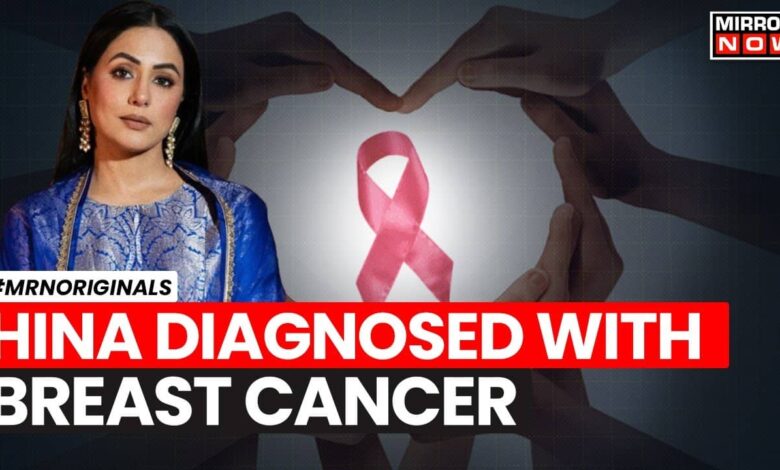
In a move that has left her fans and the wider public deeply concerned, popular actress Hina Khan recently confirmed that she has been diagnosed with stage 3 breast cancer. This news has understandably sparked a flurry of questions and discussions around this serious health condition.
Breast cancer is a type of cancer that originates in the breast tissue and can be classified into different stages based on the extent of the disease. In an interview with HT Lifestyle, Dr. Surabhi Siddhartha, Consultant Obstetrician and Gynaecologist at Motherhood Hospital in Kharghar, explained that “Stage 3 breast cancer indicates that the cancer has spread to the lymph nodes or other nearby tissues, but has not yet reached the distant organs.”
Experts emphasize the importance of regular self-examinations and clinical breast exams in identifying abnormalities early. Dr. Kanury VS Rao, Co-Founder and Chief Scientific Officer (CSO) at PredOmix, highlighted the key warning signs to watch out for, including the presence of a palpable breast lump, changes in breast shape or size, skin alterations, and unexplained nipple discharge or breast pain.
For women with a family history or genetic predisposition to breast cancer, being vigilant about any breast changes, particularly at a younger age, is crucial. Dr. Monica Gulati from Lovely Professional University stressed that even a lump in the underarm could be a sign of breast cancer, as the disease is known to spread through the lymph nodes present in the underarms.
As Dr. Surabhi Siddhartha explained, preventive screenings, such as mammograms and clinical breast exams, play a vital role in early detection. “Catching cancer in its earliest stages allows for more treatable options with higher cure rates and less invasive procedures, significantly increasing the chances of successful treatment and long-term survival.”
Hina Khan’s brave decision to share her story serves as a powerful reminder to all women to take charge of their breast health. By being proactive about self-examinations, regular screenings, and seeking prompt medical attention for any changes, women can significantly improve their odds of winning the fight against this formidable disease.



